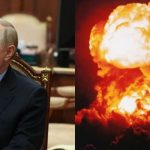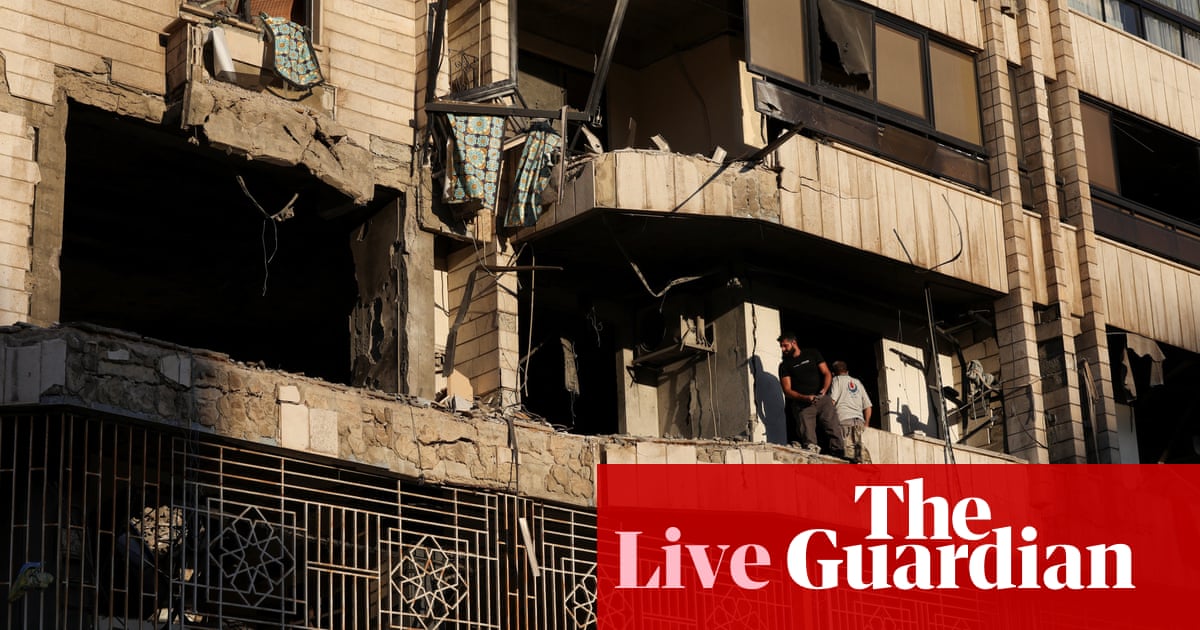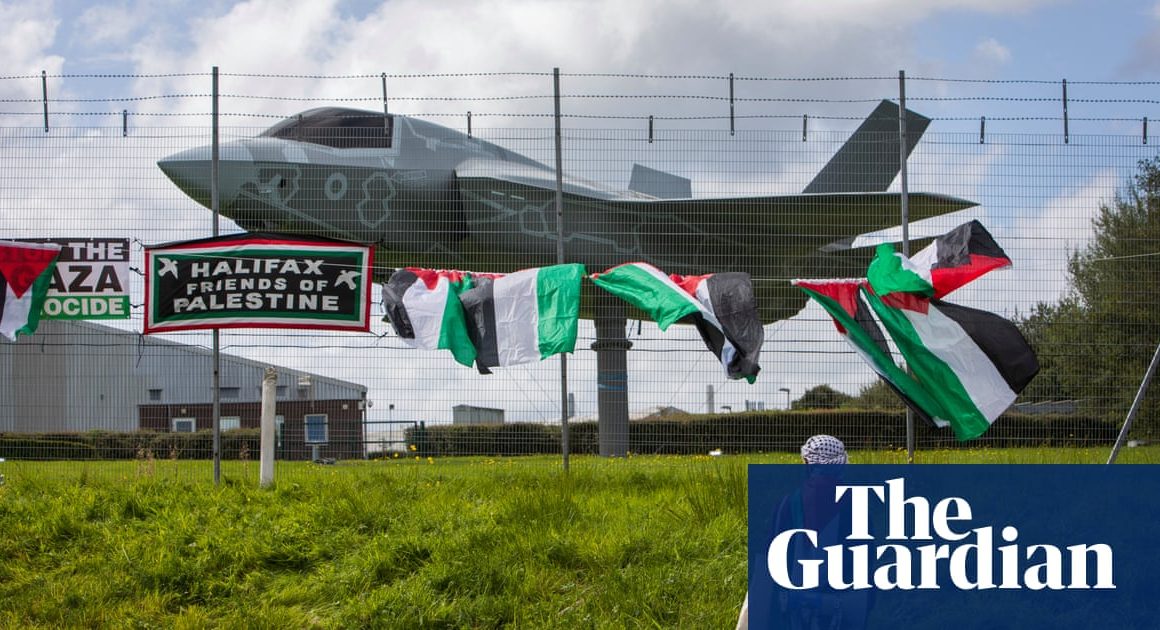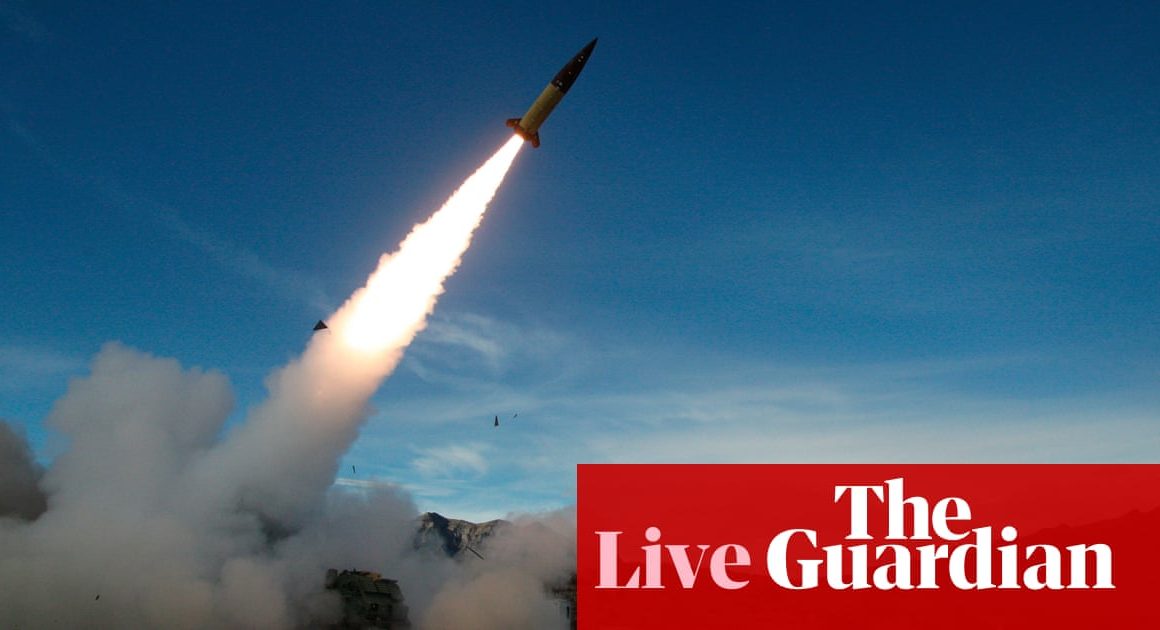Key events
Here are some pictures from Beirut’s Bachoura neighbourhood, where at least six people were killed in an Israeli airstrike on a medical centre.
Six killed in Israeli strike on central Beirut medical centre, Lebanon says
William Christou
Israeli strikes on a central Beirut medical centre have killed at least six people, after Israel’s military suffered its deadliest day on the Lebanese front in a year of clashes with Iran-backed Hezbollah.
Residents in Beirut heard a missile flying above the city before hearing the sound of the explosion. Videos showed the floor of an apartment building burning. Residents living in nearby areas began to flee, driving away quickly in scooters and cars.
The Israeli strike hit a medical centre belonging to the Hezbollah-linked Islamic Health Organisation in the early hours of Thursday. The attack was the second airstrike on central Beirut this week, with most strikes having previously been confined to suburbs in the city’s south.
The Israel Defense Forces (IDF) said it was targeting Beirut and issued evacuation warnings for various locations throughout the night. Three missiles also hit the southern suburb of Dahiyeh, where Hezbollah leader Hassan Nasrallah was killed last week, and loud explosions were heard, Lebanese security officials said.
At least six people were killed and seven wounded, Lebanese health officials said, adding that a further 46 people had been killed in Israeli attacks on the city in the previous 24 hours.
A day after Iran fired more than 180 missiles into Israel, the wider region awaited Israel response to the attack, with US president Joe Biden saying he would not support an Israeli attack on Iranian nuclear sites, as he attempted to contain a rapidly escalating regional conflict.
Opening summary
Hello and welcome to the Guardian’s live coverage of the conflict in the Middle East.
Israel carried out hours of airstrikes on Beirut early on Thursday and the Lebanese health ministry says at least six people have been killed and seven injured in an Israeli attack on a health centre in the central suburb of Bachoura.
The medical centre belonged to the Hezbollah-linked Islamic Health Organisation. It is the second time central Beirut has been targeted since Israel began its bombing campaign a couple of weeks ago. The area is home to the Lebanese parliament and the UN’s regional headquarters. It is a war crime to target health workers.
The southern district of Dahiyeh, which is where Hezbollah leader Hassan Nasrallah was killed last week, has also been repeatedly targeted. The IDF had issued warnings to people in several neighbourhoods but it is not clear whether they were issued in time for people to flee.
The attacks come as Hezbollah and Israel clashed in southern Lebanon, with Israel confirming the deaths of eight soldiers as it continued its ground invasion.
Iran was meanwhile bracing itself for potential Israeli attacks on its nuclear facilities following its own unprecedented missile barrage on Israel, which in turn came after Israel’s deadly attack on Hezbollah leader Hassan Nasrallah last week.
US President Joe Biden has said that Washington would not support such an attack on Iran, but Israel has repeatedly flouted US demands not to escalate its conflicts.
In other developments:
-
Lebanon’s health ministry said prior to the strike on central Lebanon that 46 people had been killed and 85 wounded in Israeli strikes on Lebanon in the past 24 hours. Israeli strikes have killed more than 1,000 people in Lebanon over the past two weeks, many of them women and children, according to the ministry.
-
Israel will respond to Iran’s missile attack and its forces can strike anywhere in the Middle East, its military chief said. “We have the capability to reach and strike every location in the Middle East and those of our enemies who have not yet understood this, will understand this soon,” Herzi Halevi, chief of the general staff, said in a video on Wednesday. “Iran made a big mistake tonight – and it will pay for it.” Israel’s foreign minister Israel Katz threatened Israeli retaliation for Iran’s “brutal” missile attack.
-
Iran braced itself for likely Israeli attacks on its nuclear sites as the supreme leader, Ayatollah Ali Khamenei, urged the west to leave the Middle East. The unprecedented Iranian salvo of more than 180 ballistic missiles came less than 24 hours after the Benjamin Netanyahu ordered the largest ground incursion into southern Lebanon in a generation.
-
Iran’s ambassador to the UN, Amir Saied Iravani, said Tuesday’s missile attacks against Israel were “necessary to restore balance and deterrence”, adding that they were a “proportionate response to Israel’s continued terrorist aggressive acts over the past two months”. “Experience has proven that Israel only understands the language of force,” he told the council as he defend Tehran’s actions in line with the UN Charter.
-
Abbas Araghchi, Iran’s foreign minister, earlier made a round of diplomatic calls, insisting that Iran was not seeking escalation. Part of the purpose of Araghchi’s calls was to convey the limits of the Iranian operation, and to urge the US and Europe to insist in turn that Israel show restraint in its response.
-
Joe Biden, the US president, said he would not support an Israeli attack on Iranian nuclear sites, as the US sought to temper Israel’s response to Iran’s missile attack on Tuesday and contain a rapidly escalating regional conflict. Israel’s prime minister, Benjamin Netanyahu, convened a meeting of his top security officials at the Israeli defence headquarters, the Kirya in Tel Aviv, on Wednesday afternoon to discuss the country’s options after a round of conversations with Washington.
-
Biden and G7 leaders “unequivocally” condemned the Iranian missile attack on Israel during a call on Wednesday, the White House said. In a readout of the call, the White House said Biden joined the call with the G7 to discuss the Iranian attack and “to coordinate on a response to this attack, including new sanctions”.
-
More than 70 people have been killed in a series of Israeli attacks in southern Gaza, Palestinian medical officials said on Wednesday, including at least a dozen children. The health ministry in Gaza said at least 51 people were killed and 82 wounded in the operation in Khan Younis that began early on Wednesday. Records at the European hospital show that seven women and 12 children, as young as 22 months old, were among those killed. Another 23 people, including two children, were killed in separate strikes across Gaza, according to local hospitals.
-
At least 41,689 Palestinians have been killed and 96,625 others injured in Israeli military strikes across the Gaza Strip since 7 October, Gaza’s health ministry said on Wednesday. Israel has continued to strike what it says are militant targets across Gaza nearly a year after Hamas’s 7 October attack triggered the war in the territory, and even as attention has shifted to Lebanon and Iran.
-
The son-in-law of Hezbollah leader Hassan Nasrallah was reportedly killed in an Israeli airstrike. The UK-based Syrian Observatory for Human Rights reported that Hassan Jaafar Qasir was among three people killed by the attack, which flattened a building in the Mazzeh district, an area favoured by Hezbollah militants and officers of Iran’s Islamic Revolutionary Guard Corps.
-
Hamas’s armed wing, the al-Qassam brigades, claimed responsibility for a shooting and knife attack in Tel Aviv on Tuesday that killed at least seven people. Across the country, there was a sense of apprehension on Wednesday as Israel vowed to retaliate against Iran for the missile strike.
-
Eight Israeli soldiers have been killed and a number of others wounded in three exchanges with Hezbollah in heavy fighting inside Lebanon, according to the Israel Defense Forces (IDF). The deaths appeared to signify the first substantial clashes between IDF soldiers and Hezbollah since Israel said it had initiated a limited ground incursion into Lebanon to target Hezbollah’s infrastructure along the border.
-
Hezbollah said it inflicted casualties on a group of Israeli soldiers attempting to assault the Lebanese village of Odaisseh, not far from the border. The Iran-backed group also said its fighters wounded and killed a group of Israeli soldiers in southern Lebanon after detonating an explosive device. It also claimed it had destroyed three Israeli Merkava tanks with guided rockets in the Lebanese border town of Maroun el-Ras.
-
The IDF claimed to have destroyed “over 150 terror infrastructures”, which it said included “Hezbollah headquarters, weapons storage facilities and rocket launchers” inside Lebanon. Israel’s military also reported a continued barrage of projectiles fired into the country from Lebanon.
-
António Guterres, the UN secretary-general, on Wednesday condemned Iran’s missile attack on Israel, telling the security council the “deadly cycle of tit-for-tat violence must stop”. “Time is running out,” he told the council. Earlier on Wednesday, Israel’s foreign minister Israel Katz said he was barring Guterres from entering the country because he had not “unequivocally” condemned Iran’s missile attack on Israel. The UN has decried the Israeli government’s decision to ban Guterres from entering the country as a “political statement” and “one more attack on the United Nations staff that we’ve seen from the government of Israel”.
-
A charter flight to evacuate Britons from Lebanon landed in Birmingham late on Wednesday. The Dan Air plane landed at Birmingham international airport just before 8.40pm, having stopped off in Bucharest en route. Beirut’s international airport remains open but ministers and officials are preparing contingency plans for sea and air rescues via Cyprus should the security situation in Lebanon deteriorate to the point at which commercial flights are stopped.
-
Thousands of foreign nationals have left Lebanon since Israel stepped up its campaign against Hezbollah just over a fortnight ago. Slovakia is preparing to evacuate its nationals from Lebanon, and has received permission from the Lebanese government to use a military plane for the purpose. China’s state-owned news agency Xinhua reported that over 200 Chinese nationals have been evacuated from Lebanon. The US state department said it organised a flight from Beirut to Istanbul on Wednesday to allow Americans to leave Lebanon. French nationals in Iran have been recommended to leave temporarily once international air traffic resumes. Germany’s foreign ministry also urged its citizens to leave Iran.
-
Iran’s supreme leader, Ayatollah Ali Khamenei, warned Hezbollah chief Hassan Nasrallah to flee Lebanon days before he was killed in an Israeli strike last week, according to a report. In the immediate aftermath of the attack that targeted pagers used by Hezbollah members on 17 September, Khamenei sent a message with an envoy to beseech Nasrallah to leave Lebanon for Iran, a senior Iranian official told Reuters.












